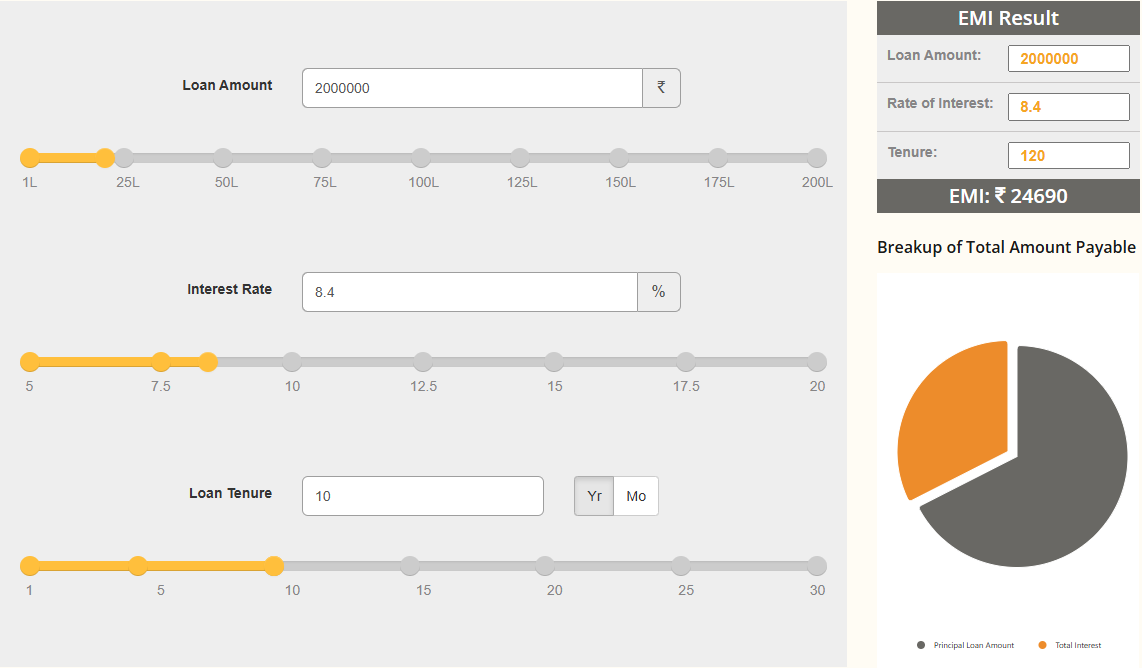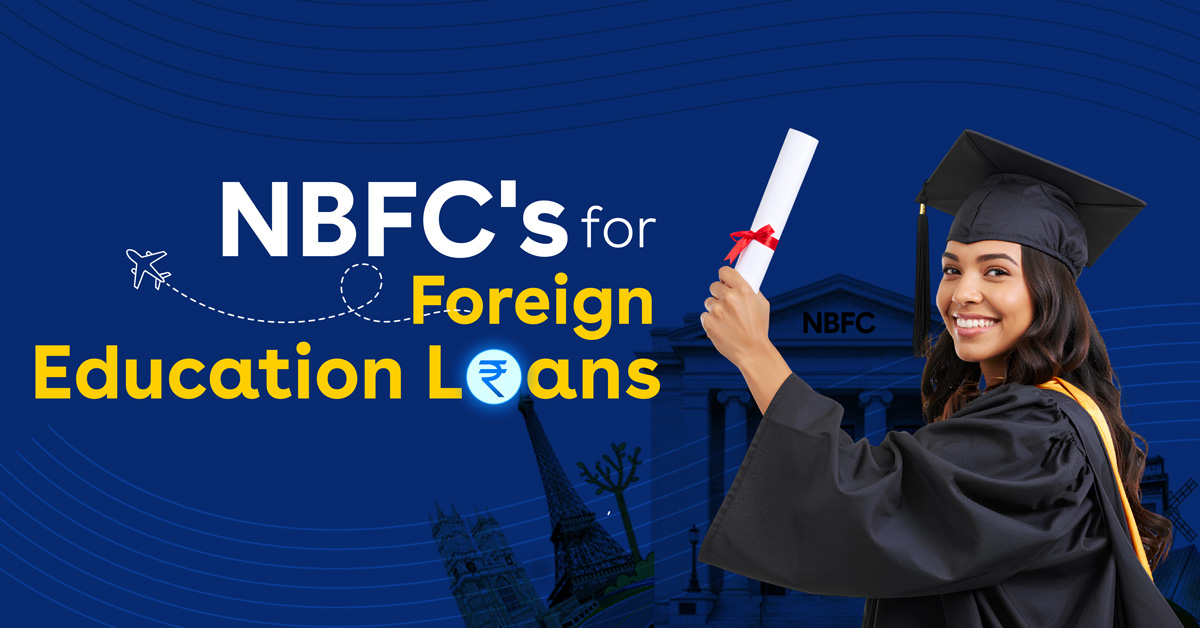Jun 25, 2025
SBI Education Loan for Diploma Courses Abroad: Key Features, Criteria, Documents, & More
You’ve got your sights set on studying abroad, but not for a regular degree. Instead, you’re aiming for a Diploma Course that’s focused, career-driven, and internationally accepted. Whether it's a Hospitality Diploma in New Zealand or a Design Course in Canada, Diploma Programs are becoming the fast-track to global opportunities.
But let’s be honest, studying abroad isn’t cheap. Tuition fees, living expenses, flights, and daily costs can stack up quickly. When you're planning your future, financial worries are the last thing you need. That’s exactly where an overseas education loan can help, and the State Bank of India truly shines here.
As one of India’s most trusted banks, the SBI education loans are tailored not just for degrees, but also for Diploma Courses Abroad. So, if you are planning to study overseas, we’ll walk you through everything. Let’s begin with why choosing a diploma course abroad could be the smartest decision you make.
Why Study Diploma Courses Abroad?
So, you’ve set your heart on studying a Diploma Course Abroad. But if there’s even a tiny bit of doubt lingering in your mind, don’t worry, you’re not alone. It's natural to wonder whether this path is worth it. The good news? It absolutely is, and here’s why.
Career-Focused Learning: If you already have a clear idea of what you want to do, a Diploma Course Abroad can fast-track your entry into that field. These programs equip you with targeted, job-ready skills.
Effective Learning in Less Time: Not everyone is ready to commit to a multi-year degree. Diploma programs offer the perfect balance; they’re shorter in duration, yet immersive enough to give you the full student experience abroad.
Work-Ready Skills to Boost Resume: Most Diploma Courses Abroad include Practical Training, Internships, or Co-Op Components that give you hands-on experience while you study. This kind of exposure not only enhances your skills but also adds valuable international work experience to your resume.
Certainly, these advantages can put your career on the fast track. But as with anything valuable, quality education abroad comes at a cost. So, without any further delay, let’s shift our focus and explore the cost of studying Diploma Courses across some of the top international study destinations.
Cost to Study Diploma Courses Abroad
The cost of studying Diploma Courses Abroad can vary significantly based on the Country, Institution, and Program you choose. While these are generally more affordable than full-fledged degrees, you’ll still need to account for tuition fees, living expenses, and other costs like Visa Charges, Health Insurance, and Travel.
To help you get a clearer picture, we’ve provided an estimated tuition fee range for popular study destinations in the table below.
|
Countries |
Cost Range |
|
USA |
e$6,500 - $46,350 |
|
Canada |
CAD 9,156 - CAD $54,000 |
|
Australia |
AU$39,040 - AU$49,900 |
|
New Zealand |
30,000 NZD - 45,000 NZD |
|
Singapore |
SGD 15,000 - 2,30,000 SGD |
As we mentioned earlier, the cost of studying abroad shouldn’t hold you back, especially when there are reliable financial lenders ready to support your journey. So, let’s now take a closer look at some of the top financial institutions that offer overseas education loans to help you pursue your Diploma Abroad.
Financial Lenders Offering Loans for Diploma Courses Abroad
When it comes to funding your Diploma Course Abroad, you have multiple financial options to explore. Education loans aren’t limited to just one type of lender, there are Nationalized Banks, Private Banks, and NBFCS (Non-Banking Financial Companies) that cater specifically to study abroad needs.
To make your research easier, we’ve listed some of the most popular and trusted lenders below who offer overseas education loans for Diploma Programs.
|
Nationalised Banks |
Private Banks |
NBFCs |
|
State Bank of India |
Axis Bank |
Avanse |
|
Bank of Baroda |
ICICI Bank |
Credila |
|
Bank of India |
IDFC First Bank |
Incred/Auxilo |
|
Union Bank of India |
Yes Bank |
Tata Capital |
|
Punjab National Bank |
- |
- |
|
Saraswat Bank |
- |
- |
|
Bank of Maharashtra |
- |
- |
While there are several Financial Lenders offering both secured and non collateral education loan for studying abroad, the State Bank of India (SBI) continues to stand out as a top choice for many students. But what exactly sets SBI apart from the rest?
Let’s move ahead and explore why taking an SBI Education Loan for your Diploma Course Abroad could be a smart decision.
Why take SBI Education Loan for Diploma Courses Abroad?
When it comes to funding Diploma Courses Abroad, most financial lenders fall short. Many NBFCs and Private Banks either don’t finance such programs or attach high interest rates and rigid repayment terms.
The State Bank of India, however, is one of the few Nationalized Banks that not only supports Diploma Programs abroad but also offers student-friendly features. Let’s take a closer look at some of the key advantages SBI offers.
Comprehensive Loan Coverage Across All Course Levels: SBI stands out by offering education loans for nearly every academic level, from Undergraduate Diplomas and Certificates to Graduate Diplomas and even Pathway Programs. While most Private Lenders and NBFCs hesitate to fund non-degree or diploma-level courses, SBI ensures that deserving students don’t miss out due to course type.
No Serving Interest Required During Moratorium: With SBI’s Education Loan for Diploma Courses, you’re not obligated to pay the serving (simple) interest during the moratorium period. For secured loans, especially in eligible profiles, this interest payment is optional.
Collateral-Based Loans with Direct EMI Benefit: If you're opting for a secured loan, SBI allows direct EMI after the moratorium period, unlike many private lenders or NBFCs that start collecting EMIs or interest immediately, even while you're still studying.
Flexible & Affordable EMI Structure Post-Study: SBI offers a repayment tenure of up to 15 years, significantly easing your EMI burden. NBFCs often offer shorter repayment terms with higher monthly outflows.
SBI brings a host of student-centric benefits that are often missing in Private or NBFC loans. But that’s just the beginning. To give you a clearer picture, let’s now break down the SBI Education Loan Interest Rate.
Unlock Your Study Abroad Dream: Rates Slashed!

State Bank of India Abroad Education Loan EMI calculator

See how much you can Save!
For instance, if you take a loan of Rs.20 lakhs with an interest rate of 8.4%, to be repaid over 10 years, your repayable EMI is Rs.24,690.
SBI Education Loan for Diploma Courses Abroad Key Features
SBI’s Education Loan for Diploma Courses Abroad is crafted to offer flexibility, affordability, and long-term support for your academic and career goals. The bank provides secured education loans tailored for international diploma programs. So, let us now take a look at the key features that make SBI a smart and reliable choice for funding your Diploma Studies Abroad.
|
Features |
Diploma Courses Abroad |
|
Quantum of Finance |
|
|
Funding & Margin |
*90% + 10% with each disbursement |
|
Rate of Interest | Non-Prime University List: With Collateral 8.90% * 0.50% Girl child concession Prime List: Without Collateral 8.90% and with Collateral 8.40% for all students |
|
Offer Letter |
Can be processed on the basis of a Conditional or Unconditional Offer Letter. For the USA, an I-20 is not required to initiate the loan process. |
|
Disbursement |
|
|
Property Acceptable |
SBI accepts various assets as collateral, including a Residential Flat, House, Open Plot (Above 2000 Sq. Ft), Shop, Commercial Property, Fixed Deposit, or LIC Policy. |
|
Moratorium Period |
Course duration + 6 Months |
|
Repayment Tenure |
15 years |
|
Security Margin |
Up to 100% of the realizable value of the pledged asset can be sanctioned as the loan amount. |
|
TAT |
|
SBI Education Loan for Diploma Courses Abroad Eligibility Criteria
Knowing the requirements in advance will help you prepare your documents accurately and make the abroad education loan application process smoother. Below, we have mentioned the general eligibility criteria for SBI Education Loans for Diploma Courses Abroad.
You need to be an Indian citizen and at least 18 years old when applying for the loan.
You need to have secured admission to a recognized Foreign University or Institution for a Diploma Course.
A Strong Academic Record is important.
Having a Co-applicant is mandatory.
A co-applicant is usually a parent or legal guardian with a steady income and a good credit history, which strengthens your loan application.
Now that you’re clear about the eligibility criteria, it’s time to gather your paperwork. Documentation plays a key role in speeding up your loan approval. So, grab a folder and start checking off the list.
Education Loan for Diploma Courses Abroad Essential Documents
The first step is filling out and signing the Loan Application Form. Once that’s done, you’ll need to submit a set of supporting documents that validate your academic plans and financial needs. Below is the list of essential papers you’ll need to include with your application.
Personal Identity & Residence Proof
A Valid Photo ID (Aadhaar Card, Passport, PAN Card, etc.)
Proof of Residence (Utility bill, Aadhaar, Passport)
Two recent Passport-Sized Photographs
Academic Documents
Admission/Offer Letter from the institution
Educational Qualification Certificates (10th, 12th & Graduation Mark Sheets)
Work Experience (if any)
Financial & Income Documents
Detailed Fee Structure from the University
IT Returns/Form 16 of the last two years
For Salaried Co-Applicants
Salary slips for the past 3 months or a Certificate on Company Letterhead
Form 16 or IT returns of the last 2 years
Additional proof of income if applicable
For Self-Employed Co-Applicants
Proof of Office Premises (Rent Deed, Utility Bill, etc.)
IT returns of the last 2 years
Balance Sheet and Profit & Loss Account of Last 2 years
Business Registration Certificate
Collateral Documents
Step 1: Collect all Documents as per the SBI Loan checklist.
Step 2: Bank officials evaluate Academic Records, Financial Documents, and any Property Documents (for secured loans).
Step 3: Fill out the SBI Loan Application Form with accurate details.
Step 4: Submit the Complete Loan File to your nearest SBI branch.
Step 5: The branch forwards your application to the Zonal Office or RACPC (Retail Asset Central Processing Centre).
Step 6: The process for property valuation and legal verification (search report) begins.
Step 7: Upon receiving both reports, the bank processes and sanctions your loan.
Step 8: Receive your Official Loan Sanction Letter.
Step 9: Begin the Mortgage Process for Collateral-Based Loans.
Step 10: The Loan amount is disbursed as per the University and VISA norms.
Looking at a 10-step loan process might feel overwhelming, you may wonder where to begin and how to navigate it all. But don’t worry, the solution is right ahead.
How can Élan Loans help with SBI Education Loan for Diploma Course Abroad?
As we know, applying for an education loan with a Nationalized bank like SBI can be beneficial, but the process can feel lengthy, technical, and often confusing, especially for first-time applicants. From gathering property documents to coordinating with RACPCs, there’s a lot to manage. This is exactly where Élan Loans, steps in to make things smooth and stress-free. Here’s how Élan Loans simplifies the SBI education loan process for your Diploma Course Abroad.
Expert Profile Assessment
Precise Documentation Support
Liaison with SBI Officials
Property & Collateral Guidance
Loan File Preparation & Submission
No Branch-Hopping Needed
Faster Disbursal Post-Visa & Pre Visa
With Élan Loans by your side, you won’t just apply for an overseas education loan; you’ll apply smartly, efficiently, and with the confidence of getting it done right the first time. Their hands-on support turns a complex process into a seamless experience, helping you step into your dream Diploma Course Abroad without unnecessary stress.
So, reach out to our Loan Experts now!
FAQs
1. Can I apply for an SBI Education Loan for Diploma Courses Abroad without having a Co-Applicant?
No, a Co-applicant is mandatory for SBI Education Loans. The co-applicant, usually a parent or guardian, should have a stable income source and a good credit profile.
2. Is there a cap on the maximum loan amount for Diploma Courses Abroad under SBI?
While SBI offers up to ?3 Cr for overseas education loans with collateral, the sanctioned amount depends on the Course, Country, Financial Profile, and Collateral value (if applicable).
3. What if my Diploma Course duration is less than a year?
SBI usually funds full-time Diploma Programs of at least one year. Short-term Certificate or Vocational Courses may not be eligible under standard education loan schemes.
4. Can I club my living expenses and travel costs within the SBI Education Loan Amount?
Yes, SBI loans can cover tuition fees, living expenses, travel costs, including Airfare, Visa Fees, and Even Laptop Costs, subject to the total sanctioned amount and course norms.
5. Are Diploma Courses in Non-English Speaking Countries eligible for SBI education Loans?
Yes, SBI provides education loans for Diploma Courses in various countries, including non-English speaking nations, as long as the institution is recognized and meets the bank’s approval criteria.

- Share this Article
Articles on Overseas Education Loans

NBFC Foreign Education Loans vs Banks
As the number of Indian students wishing to go abroad increases..Feb 02, 2026

Pre Visa vs Post Visa Study Abroad Loan Disbursement
We all can recall the scenes from heist movies...Jan 30, 2026

How Spring 2026 Intake Impacts Abroad Education Loans
With the commencement of 2026, the Spring intake starts....Jan 30, 2026

 Login
Login